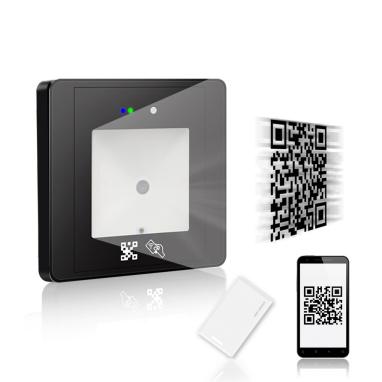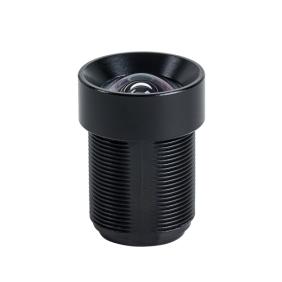QR (Quick Response) codes have become ubiquitous in our daily lives, from product packaging to advertising campaigns. The ability to quickly and accurately scan QR codes is essential for their effective utilization. However, capturing high-quality images of QR codes can be challenging due to various factors, including suboptimal lighting conditions and camera limitations. To overcome these challenges, the application of low distortion lenses has emerged as a valuable tool in enhancing QR code scanning accuracy. In this article, we will explore how low distortion lenses contribute to more reliable QR code scanning and discuss their various applications.
The QR code scanning
Understanding Distortion in QR Code Scanning
Distortion refers to the alteration of the original shape or size of an object when captured in an image. In the context of QR code scanning, distortion can negatively impact the accuracy and reliability of the scanning process. Distorted images may result in difficulty reading QR codes accurately, leading to errors or failed scans. Traditional lenses used in cameras often introduce some degree of distortion due to their inherent design limitations.
The Advantages of Low Distortion Lenses
Low distortion lenses offer several advantages over traditional lenses when it comes to QR code scanning. These lenses are specifically designed to minimize or eliminate distortion, resulting in more accurate image capture and analysis. Let’s delve into some of the key benefits of using low distortion lenses in QR code scanning:
Improved Image Clarity: Low distortion lenses help maintain the original shape and proportions of QR codes, resulting in sharper and clearer images. This clarity enables scanners to accurately interpret the information encoded in the QR codes, reducing the likelihood of misreads or failed scans.
Enhanced Scanning Range: QR codes come in various sizes, and their effective scanning range can be limited by distortion introduced by traditional lenses. Low distortion lenses allow for a wider scanning range, enabling users to scan QR codes from different distances and angles without compromising accuracy.
Robust Performance in Challenging Environments: QR code scanning often takes place in diverse environments, such as low light conditions or areas with strong reflections. Low distortion lenses improve the camera’s ability to capture QR codes accurately, even in challenging lighting conditions, resulting in reliable scanning performance regardless of the environment.
Quick and Accurate Decoding: Low distortion lenses facilitate faster and more accurate QR code decoding. By capturing distortion-free images, these lenses provide scanners with a clear and unambiguous representation of the QR code, minimizing the risk of errors during the decoding process.
Applications of Low Distortion Lenses in QR Code Scanning
The application of low distortion lenses in QR code scanning extends to various industries and use cases. Let’s explore a few key applications:
The application of low distortion lenses
Retail and Advertising:
In retail environments, QR codes are often used to provide customers with product information, discounts, or special offers. Low distortion lenses enable reliable scanning of QR codes on various surfaces, such as curved packaging or shiny materials, ensuring a seamless customer experience.
Transportation and Ticketing:
QR codes are widely used for ticketing and boarding passes in the transportation industry. Low distortion lenses enhance the scanning accuracy of QR codes on mobile screens or printed tickets, streamlining the ticket validation process and reducing delays at checkpoints.
Contactless Payments:
With the growing popularity of mobile payment solutions, QR codes are frequently used for contactless payments. Low distortion lenses ensure accurate scanning of QR codes displayed on payment terminals or mobile devices, facilitating swift and secure transactions.
Inventory Management and Tracking:
QR codes play a crucial role in inventory management and asset tracking. Low distortion lenses enable efficient scanning of QR codes on items of various shapes, sizes, or materials, improving the accuracy of inventory control and tracking systems.
Conclusion
Accurate and reliable QR code scanning is essential for leveraging the full potential of QR codes in numerous applications. Low distortion lenses provide significant advantages over traditional lenses, including improved image clarity, enhanced scanning range, robust performance in challenging environments, and quick and accurate decoding. These lenses find applications in various industries, including retail, transportation, contactless payments, and inventory management. As the use of QR codes continues to expand, integrating low distortion lenses in QR code scanning processes will be crucial for ensuring optimal performance and user experience.
Post time: Jul-13-2023





